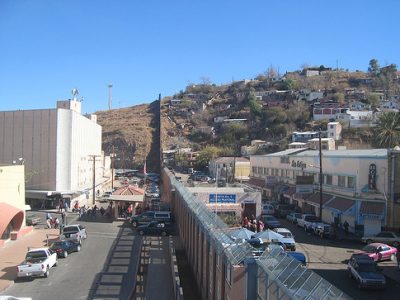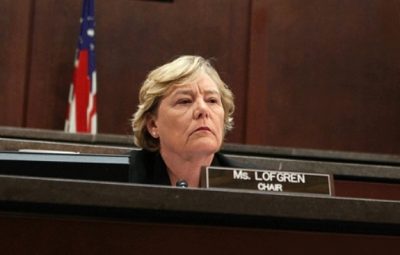Legislation

DNC Live: Janet Murguia Concludes NDN Immigration Forum
Janet Murguia, CEO of President of National Council of La Raza was the final speaker at NDN's Immigration Reform and the Next Administration forum event at the DNC. Murguia wanted to add another dimension to the conversation by pointing out that as a Latina, she and her fellow Latinos care about a lot of issues--yet immigration is the single issue that crosses across the community and is mobilizing Latinos across the country. Read More

DNC Live: NDN Immigration Forum Resumes with Frank Sharry
Frank Sharry, Executive Director of America's Voice was the third speaker featured at NDN's Immigration Reform and the Next Administration forum event. Sharry began by providing a definition for attrition through enforcement: From the policy point of view, attrition through enforcement assumes we have good laws and bad people and what we have to do is enforce the good laws so that the bad people go away. The idea is to make life so miserable so people will leave. He referred to it as more accurately being a form of "non-violent ethnic cleansing"--making a bad problem worse. Read More

DNC Live: Marco Lopez Continues NDN Immigration Discussion
The next speaker at the NDN's Immigration Reform and the Next Administration forum event at the DNC was Marco Lopez of Arizona, a rising star in American politics. Lopez talked about what Arizona has had to do "creatively" to tackle the growing trend of migration from South to North, acknowledging that Arizona--as one of the fastest growing states--needs workers. Read More

DNC Live: NDN Immigration Forum with Zoe Lofgren
NDN is currently holding a forum on Immigration Reform and the Next Administration at the Democratic National Convention in Denver. NDN President Simon Rosenberg began the conversation acknowledging that the Democrats have "woken up" to the relevance of the immigrant voting population in the upcoming election. NDN Vice-president, Andres Ramirez, introduced Congresswoman and Chairman of the House Committee on Immigration Reform, Zoe Lofgren of California. Read More

What Biden Means for Immigration Reform
This past weekend, presumptive Democratic nominee, Barack Obama, introduced Joseph Biden of Delaware as his vice-presidential running mate. Pro-immigrant and labor groups have lauded Obama's decision to run next to a six-term senator with foreign policy expertise and a firm commitment to comprehensive immigration reform. Frank Sharry of America's voice and a featured panelist at NDN's Immigration Reform and the Next Administration forum event at the DNC said in a released statement "As a member of the Senate Judiciary Committee, he [Biden] has been a strong, consistent and unwavering supporter of common sense immigration reform. Biden understands, as do the majority of Americans, that the immigration system is broken and the current Administration has failed miserably to solve the problem." Read More

Olympic Win Highlights Immigration Challenges
On Tuesday night, Henry Cejudo nabbed an Olympic gold medal for the U.S. and realized the dream that his mother, Nelly Rico, carried with her as she crossed the border from Mexico over twenty years ago. Rico—an undocumented immigrant—encouraged her children to work hard and aim high. Now her son is an American hero and the youngest American wrestler to win a gold in the Olympics. Read More

Does the “SAVE Act” Save Anything? The Real Price of “SAVE”
The Congressional Budget Office (CBO) recently released an estimate of the costs of the “Secure America Through Verification and Enforcement Act” (“SAVE Act,” HR 4088), and concluded that the “SAVE Act” would decrease federal revenues, increase government spending, and create an unfunded mandate for states and private employers. Read More

The “Secure America through Verification and Enforcement” (“SAVE Act”) of 2007 (H.R. 4088) Summary and Analysis of Provisions
The “SAVE Act” was introduced in November 2007 by Reps. Heath Shuler (D-NC) and Brian Bilbray (R-CA). A companion bill (S. 2368) has been introduced in the Senate by Sens. Mark Pryor (D-AR) and Mary Landrieu (D-LA). The “SAVE Act” is an immigration enforcement-only package that would dramatically expand the error-ridden Basic Pilot electronic employment verification system and make a number of harsh and unnecessary changes to current law . The Basic Pilot system is currently used by only 30,000 employers, but would expand to cover over 6 million employers in just four years – roughly a 20,000 percent increase. Beyond that, the bill seeks to increase the Border Patrol and spend more resources on the southern border, codify recently withdrawn DHS regulations related to the Social Security Administration “no match” letters, expand local police responsibilities to include immigration enforcement, and a number of other enforcement measures. Absent from the bill are any provisions that would address the more than 12 million people in the US without status. Read More

Wasted Talent and Broken Dreams: The Lost Potential of Undocumented Students
The current political debate over undocumented immigrants in the United States has largely ignored the plight of undocumented children. Yet children account for 1.8 million, or 15 percent, of the undocumented immigrants now living in this country. These children have, for the most part, grown up in the United States and received much of their primary and secondary educations here. But without a means to legalize their status, they are seldom able to go on to college and cannot work legally in this country. Moreover, at any time, they can be deported to countries they barely know. This wasted talent imposes economic and emotional costs on undocumented students themselves and on U.S. society as a whole. Denying undocumented students, most of whom are Hispanic, the opportunity to go to college and join the skilled workforce sends the wrong message to Hispanics about the value of a college education-and the value that U.S. society places on their education-at a time when raising the educational attainment of the Hispanic population is increasingly important to the nation's economic health. Read More

Divided Families: New Legislative Proposals Would Needlessly Restrict Family-Based Immigration
New legislative proposals to drastically restrict family-based immigration practically ignore the social and economic benefits of the family-based admissions system for both immigrants and the native-born. Read More
Make a contribution
Make a direct impact on the lives of immigrants.
